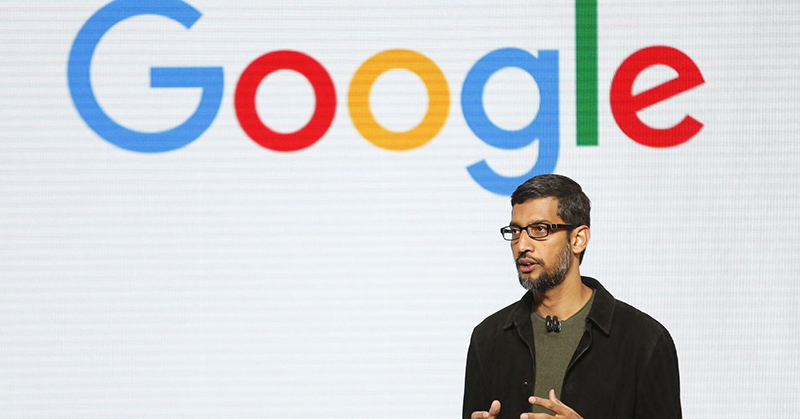 Google
Google
California: For over twenty years, Google has been the dominant force in the online search market, building a $175 billion business that has become central to the internet experience.
With about 90 percent of the global search market share, Google is now facing significant challenges from the rise of generative artificial intelligence (Gen AI) and advanced chatbots, such as OpenAI’s SearchGPT prototype.
This technological evolution is pressuring Google to adapt or risk losing its leading position.
Microsoft’s $13 billion investment in OpenAI and Apple’s integration of ChatGPT into Siri represent serious threats to Google's dominance.
These developments are forcing Google to respond quickly to retain its market lead.
Google’s past success has been largely attributed to its user-friendly interface and powerful algorithms, which made finding information faster and easier compared to competitors like Yahoo.
By effectively indexing massive amounts of data, Google became the preferred search engine for many users.
However, with the advent of generative AI technologies, Google's once-innovative search model is showing signs of age.
AI-driven tools can now provide direct answers to user queries, bypassing the need to sift through multiple search results—a core feature of traditional search engines.
This shift in user behavior poses a significant threat to Google's established model.
What was once its greatest strength—simplicity—is now becoming a weakness as AI platforms transform how people access information.
New competitors, such as Perplexity, a $1 billion startup backed by Amazon founder Jeff Bezos, are gaining ground.
These AI tools offer streamlined user experiences by providing direct answers rather than a list of links, potentially drawing users away from Google.
Additionally, intrusive ads on Google’s search results are making alternative platforms more attractive.
This change represents a fundamental challenge to Google's core business model, which is heavily reliant on advertising revenue.
In the second quarter of this year, Google Search alone generated $48.5 billion of Alphabet’s total $84.7 billion revenue.
Moreover, licensing deals between OpenAI and major publishers like the Financial Times and Associated Press could limit the availability of content on Google, further eroding its dominance.
The relationship between Google and content creators has often been strained, with many publishers dissatisfied with how their content is used.
If AI platforms secure exclusive content deals, users might turn to these alternatives, reducing Google’s appeal.
Despite these challenges, Google has approached the rise of generative AI cautiously.
While the company has started to incorporate AI features, such as AI Overview summaries at the top of search results, critics argue that its focus on preserving its search and advertising monopoly has led to a conservative approach to AI development.
Google's search business remains a highly profitable asset, and the company seems reluctant to make bold moves that could jeopardize its existing revenue streams.
There is ongoing debate about whether Google should follow OpenAI’s lead by securing more licensing agreements with publishers, though such deals could be costly.
In 2020, Google committed to paying news providers $1 billion over three years, and potential expenses related to copyright issues could further impact its finances.
On the hardware front, Google benefits from its recent Pixel 9 smartphones, which feature Gemini, Google’s personal AI assistant.
This integration highlights Google’s ability to embed AI across its devices, potentially setting standards for Android manufacturers like Samsung and Xiaomi.
In contrast, Apple has developed its own AI model, Apple Intelligence, focused on user privacy and operating directly on devices rather than through cloud systems.
For Google to fully leverage its AI capabilities, it must address deeper organizational issues.
While its culture of autonomy can be a strength, it may also hinder cohesive strategy execution.
Google CEO Sundar Pichai will need to unify various teams—those managing search, computing platforms, and AI—under a single vision, according to CNBC.
Innovation will be crucial for Google, especially as voice search technology advances.
As users seek faster, more intuitive ways to find information, voice search and AI-powered devices will play an increasingly significant role.
Google must ensure its technology remains at the forefront of these changes, as reported by CNBC.
Support Our Journalism
We cannot do without you.. your contribution supports unbiased journalism
IBNS is not driven by any ism- not wokeism, not racism, not skewed secularism, not hyper right-wing or left liberal ideals, nor by any hardline religious beliefs or hyper nationalism. We want to serve you good old objective news, as they are. We do not judge or preach. We let people decide for themselves. We only try to present factual and well-sourced news.






